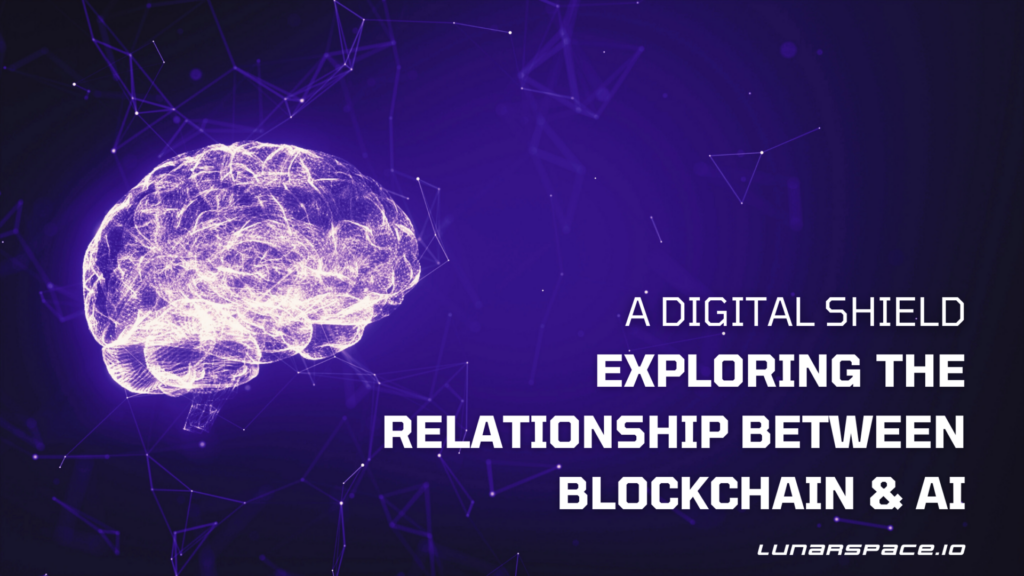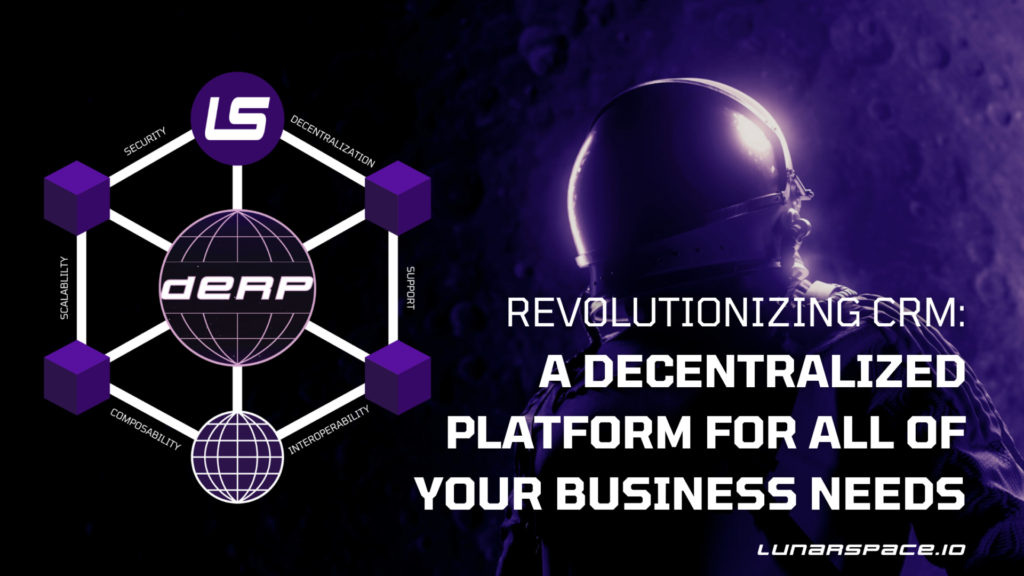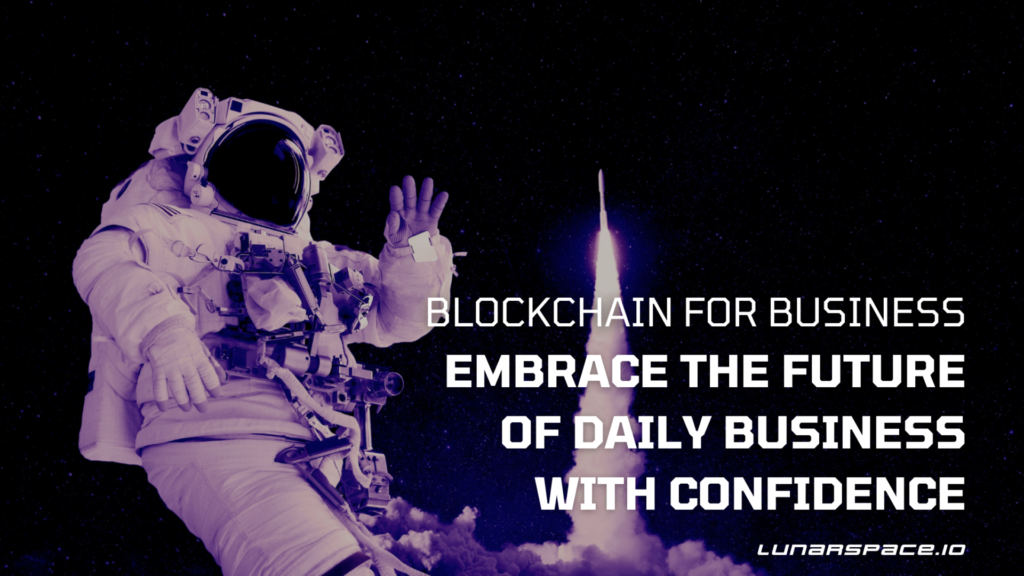Can Blockchain Protect User Data From AI?
How Blockchain Can Help Mitigate the Negative Effects of AI: A Technical Analysis
by Decentranaut
April 2023
Artificial intelligence (AI) has the potential to revolutionize many aspects of society, but its rapid development and integration also pose significant risks. As AI systems become more sophisticated and pervasive, concerns about data privacy, bias and discrimination, accountability and transparency, cybersecurity, trust, ownership and control, and ethical standards have grown more urgent. In this article, we will explore how blockchain technology can help address these concerns, and how it can be used to mitigate the negative effects of AI.
Data Privacy & Security
The Risks of Centralized Data Storage
Artificial Intelligence (AI) relies heavily on data to learn and make predictions. However, centralizing data in the hands of a few powerful entities raises serious concerns about data privacy and security. When a single organization controls large amounts of data, it can be misused, stolen, or leaked, leading to privacy breaches, identity theft, and other malicious activities.
The Advantages of Decentralized Data Storage
Decentralized data storage is one of the core features of blockchain technology. By distributing data across a network of nodes, rather than storing it in a single location, blockchain can help mitigate the risks of centralized data storage. Decentralization provides greater data security, as data is encrypted and distributed across multiple nodes, making it more difficult for hackers to breach.
Decentralized data storage also provides transparency, as anyone can access the data and verify its authenticity, leading to greater accountability and trust. This is particularly important in the case of sensitive data, such as medical records, financial data, or personal identity information.
How Blockchain Can Ensure Data Privacy
Blockchain can ensure data privacy by providing secure and transparent data storage and sharing. Each block in the blockchain contains a unique cryptographic hash, which links it to the previous block, creating an immutable record of all transactions. This makes it virtually impossible to tamper with the data without being detected.
Blockchain can also enable selective data sharing, allowing users to control who has access to their data. By using public and private key cryptography, blockchain can ensure that only authorized parties can access the data, ensuring data privacy.
The Role of Smart Contracts in Data Privacy
Smart contracts are self-executing contracts with the terms of the agreement directly written into code. They can be used to enforce data privacy policies and rules, allowing users to specify the conditions under which their data can be accessed, used, or shared. Smart contracts can also be used to manage consent, allowing users to revoke access to their data at any time.
Blockchain technology can address the negative impacts of AI on data privacy and security. Decentralized data storage and smart contracts can help ensure that personal data is secure and transparently shared, while also providing users with greater control over their data. By leveraging blockchain technology, individuals and organizations can protect their personal data from misuse and abuse.
Bias & Discrimination
The Challenge of AI Bias
Artificial intelligence has the potential to revolutionize many aspects of society, but it is not without its challenges. One of the most pressing issues facing AI today is the problem of bias. AI systems are only as good as the data they are trained on, and if that data is biased, then the AI system will reflect those biases. This can lead to discrimination and unfair treatment of certain groups of people.
Why Diverse Data Sets Matter
To counteract bias in AI, it is essential to have diverse data sets. This means including data from a wide range of sources and ensuring that the data is representative of the entire population. For example, if an AI system is being trained to recognize faces, it should be trained on images of people from all races and ethnicities.
How Blockchain Can Help Ensure Diverse Data Sets
Blockchain technology can help ensure diverse data sets by providing a decentralized framework for data sharing. With blockchain, individuals can retain control over their data and choose who has access to it. This means that data can be collected from a wide range of sources, and users can be compensated for their contributions to the data set.
The Role of Decentralization in Countering Bias
Decentralization is a key component in countering bias in AI. By using a decentralized framework, AI systems can be held accountable for their decisions, and the data they are trained on can be more transparently shared. This can help ensure that biases are identified and addressed before they become ingrained in the AI system.
Blockchain technology can help address the challenge of AI bias by promoting the use of diverse data sets and providing a decentralized framework that promotes transparency and accountability. By using blockchain, we can ensure that AI systems are fair and unbiased, and that they benefit all members of society.
Accountability & Transparency
The Importance of Accountability & Transparency in AI
The use of AI in various industries has increased significantly in recent years. However, with the rise of AI, concerns about accountability and transparency have also emerged. Centralized AI systems can be opaque, making it difficult for users to understand how decisions are being made. In addition, if something goes wrong, it can be challenging to identify the responsible party.
The Limitations of Centralized AI Systems
Centralized AI systems, which are controlled by a single entity, can pose significant risks in terms of accountability and transparency. For instance, if a single entity controls a critical AI system, there may be no way to determine how decisions are made. Moreover, if a mistake occurs, it may be challenging to determine who is accountable.
The Role of Blockchain in Promoting Accountability & Transparency
Blockchain technology offers a solution to these challenges. By using a distributed ledger, blockchain can ensure that all parties have access to the same information. This transparency can help ensure that AI systems are accountable for their actions. Blockchain can also help ensure that decisions made by AI systems are transparent and can be audited by authorized parties.
The Potential of Smart Contracts in Ensuring Accountability
Smart contracts, which are self-executing contracts with the terms of the agreement directly written into code, can also play a role in ensuring accountability. With smart contracts, the terms of the agreement can be automatically executed once the agreed-upon conditions are met. This can help ensure that all parties involved in an AI system are held accountable for their actions.
By leveraging blockchain technology, AI systems can be made more accountable and transparent, promoting trust and confidence in their use. The use of distributed ledgers and smart contracts can help ensure that all parties involved in an AI system are held accountable for their actions. As such, blockchain technology can play an important role in the development of responsible and trustworthy AI systems.
Cybersecurity
The Risks of Cyber Attacks on AI Systems
The widespread adoption of AI systems in various industries has also increased the risks of cyber-attacks. Cyber attackers can exploit vulnerabilities in AI systems, resulting in data breaches, identity theft, and other malicious activities. Traditional cybersecurity solutions, which are often centralized and reliant on single points of failure, can be easily compromised by attackers.
The Advantages of Decentralized Cybersecurity Solutions
Decentralized cybersecurity solutions can help mitigate the risks of cyber-attacks on AI systems. Unlike centralized solutions, decentralized cybersecurity solutions rely on a network of nodes that work together to protect the system. This makes it much harder for attackers to compromise the system, as they would need to compromise multiple nodes simultaneously.
How Blockchain Can Help Ensure Cybersecurity
Blockchain technology can provide a secure and decentralized framework for cybersecurity solutions. By using a distributed ledger, blockchain technology can ensure that cybersecurity solutions are transparent and immutable, making it much harder for attackers to manipulate or compromise the system. Additionally, the use of cryptography in blockchain technology can ensure that data is securely stored and transmitted.
The Role of Smart Contracts in Ensuring Cybersecurity
Smart contracts, which are self-executing contracts with the terms of the agreement between buyer and seller being directly written into lines of code, can play an important role in ensuring cybersecurity in AI systems. By automating security protocols, smart contracts can ensure that security measures are always enforced, reducing the risk of human error.
By leveraging blockchain technology, AI systems can be protected from cyber-attacks and other security threats, ensuring their safe and secure use. Decentralized cybersecurity solutions, combined with the transparency and immutability of blockchain technology and the automation provided by smart contracts, can provide a powerful framework for ensuring the cybersecurity of AI systems.
Trust
The Importance of Trust in AI Systems
As AI systems continue to gain widespread adoption, the importance of trust in these systems becomes paramount. Trust is the foundation on which AI systems rely, and without it, users may be hesitant to adopt these systems.
The Risks of Centralized Trust Systems
Traditionally, trust in AI systems has been based on centralized trust systems, such as centralized authorities, institutions, or even individual actors. These centralized trust systems can be vulnerable to manipulation, abuse, and corruption, leading to a lack of trust in the overall system.
How Blockchain Can Help Ensure Trust
Blockchain technology provides a solution to this problem by enabling decentralized trust systems that are secure, transparent, and immutable. With blockchain, trust can be established and maintained through a distributed network of nodes that collectively verify and validate transactions and data.
The Role of Smart Contracts in Ensuring Trust
Smart contracts, a key feature of blockchain technology, can help ensure trust by enabling the automation of agreements and transactions between parties. Smart contracts are self-executing programs that can be coded to enforce predefined rules and conditions, ensuring that all parties fulfill their obligations.
By leveraging blockchain technology, AI systems can be made more trustworthy, promoting greater adoption and use. Decentralized trust systems based on blockchain technology provide a secure and transparent framework for establishing and maintaining trust, while smart contracts enable the automation of agreements and transactions, ensuring that all parties fulfill their obligations.
Ownership & Control
The Risks of Centralized Ownership & Control
As AI systems become more sophisticated and integrated into our daily lives, concerns over the ownership and control of data and other assets have become increasingly important. Traditional ownership and control models often rely on centralized authorities, such as corporations or governments, which can limit individual autonomy and create the potential for abuse and exploitation.
In a centralized model, users often have little control over how their data is used and may be subject to arbitrary decisions by centralized authorities. This lack of control can lead to abuses of power and the exploitation of user data for profit or other purposes. Moreover, centralized ownership and control models can be vulnerable to external attacks, such as cyber-attacks or data breaches, which can compromise the security and privacy of user data.
The Advantages of Decentralized Ownership and Control
Decentralized ownership and control models offer several advantages over centralized models. In a decentralized model, users have greater control over their data and other assets, as they are not subject to the decisions of centralized authorities. This can lead to greater autonomy and independence for users, as well as greater transparency and accountability in the use of data.
Decentralized ownership and control models can also be more resilient to external attacks, as they are not reliant on a single point of failure. Instead, data and other assets are distributed across a network of nodes, making it more difficult for attackers to compromise the system.
How Blockchain Can Help Ensure Ownership & Control
Blockchain technology provides a framework for decentralized ownership and control that can help address the risks of centralized models. By using a distributed ledger to record transactions and a consensus algorithm to validate them, blockchain enables users to maintain control over their data and other assets in a decentralized and secure manner.
Blockchain can also facilitate the creation of decentralized applications (dApps) that can be used to manage ownership and control in a transparent and secure way. These dApps can be used to manage digital assets, such as cryptocurrency, as well as more traditional assets, such as real estate or intellectual property.
The Role of Smart Contracts in Ensuring Ownership & Control
Smart contracts, which are self-executing contracts with the terms of the agreement directly written into code, can be used to ensure ownership and control in a decentralized system. Smart contracts can be used to automate the transfer of assets between parties, as well as to enforce the terms of an agreement in a transparent and secure way.
For example, a smart contract could be used to manage the ownership and control of a piece of real estate. The terms of the contract, such as ownership rights and usage restrictions, could be written directly into the code, ensuring that they are enforced in a transparent and secure manner.
By leveraging blockchain technology, individuals and organizations can retain greater ownership and control over their data and other assets. Decentralized ownership and control models offer several advantages over centralized models, including greater autonomy, transparency, and resilience to external attacks. Smart contracts provide a mechanism for enforcing ownership and control in a transparent and secure manner, further promoting autonomy and independence for users.
Ethical Standards
The Importance of Ethical Standards in AI Systems
Artificial intelligence has the potential to transform many aspects of our lives, from healthcare to finance to transportation. However, as AI becomes more prevalent, there are growing concerns about its impact on society. One of the biggest concerns is the potential for AI systems to be used in unethical ways, such as perpetuating bias and discrimination or invading individuals’ privacy.
The Risks of Unethical AI Systems
The risks associated with unethical AI systems are significant. For example, biased algorithms can perpetuate discrimination against certain groups of people, leading to unfair treatment and outcomes. In addition, AI systems that are not transparent can be used to invade individuals’ privacy or manipulate their behavior. This can erode trust in AI and lead to negative consequences for both individuals and society as a whole.
How Blockchain Can Help Ensure Ethical Standards
One of the ways that blockchain can help address these concerns is by providing a transparent and secure framework for AI systems. By using a decentralized system, AI developers and users can ensure that the algorithms and data used to train these systems are diverse and unbiased. In addition, the use of blockchain can provide a secure and immutable record of AI decisions and actions, ensuring accountability and transparency.
The Role of Smart Contracts in Ensuring Ethical Standards
Smart contracts can also play a critical role in ensuring ethical standards in AI systems. These contracts are self-executing and enforceable agreements between parties that are stored on the blockchain. By using smart contracts, AI developers can ensure that their systems adhere to specific ethical and moral principles, such as fairness and non-discrimination. Smart contracts can also provide a mechanism for users to control how their data is used, ensuring that their privacy is protected.
As AI continues to become more prevalent, it is essential that ethical standards are established and adhered to. By leveraging blockchain technology, AI systems can be held to ethical and moral principles, ensuring that they are used for the benefit of society. With the use of decentralized data storage, transparency, and smart contracts, blockchain can promote accountability and trust in AI systems.
Mitigating the Negative Effects of AI
In conclusion, the combination of blockchain and AI holds tremendous potential for improving various aspects of our lives. By leveraging blockchain technology, we can address some of the key challenges associated with AI, including data privacy and security, bias and discrimination, accountability and transparency, cybersecurity, trust, and ownership and control.
Decentralized data storage, diverse data sets, accountability and transparency, secure cybersecurity solutions, and ethical standards can all be effectively addressed with blockchain and smart contracts. By doing so, we can promote greater adoption and use of AI systems, while also ensuring their safe, secure, and ethical use.
In summary, blockchain technology has the potential to address some of the key challenges associated with AI, while also promoting greater transparency, accountability, and ethical use of these systems. As the adoption of these technologies continues to grow, it will be important to carefully consider their implementation and regulation to ensure their responsible use and positive impact on our world.
This article was written with assistance from AI Generative Pre-training Transformer called ChatGPT and was curated by Decentranaut.









